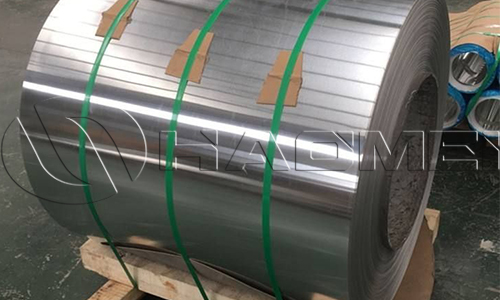Differences between pure and alloy aluminum coil
September 14, 2020
A pure aluminium coil refers to 1xxx series of aluminium coil, like the 1070 aluminum coil for sale, while an alloy alu coil stands for alu coil rolls of all other series, including 3xxx, 2xxx, 4xxx, 5xxx, 6xxx, 7xxx and 8xxx, among which only 3 are the most frequently applied.

1xxx coil is known as the pure coil group because they contain more aluminium content in comparison to other series. Even 1100, a grade with the least alu content, has 99% aluminium, while grades of other series compromise only 95% to 97% aluminium, or even less. Because of their high composition of aluminium, pure aluminum coil rolls show similar properties with aluminium metal both mechanically and chemically. They are low in density, light in weight, weak in hardness and good in rust resistance, applied in products requiring good corrosion resistance and low hardness, such as price approachable cookware, pipeline insulation, water containing tanks etc.
An alloy aluminum coil, as indicated above, falls on different groups based on variation in alloy metals. 3xxx series, mainly including 3003, 3004, 3014 and 3105 aluminum coil, has manganese as its alloying metal, featured by higher strength and stronger corrosion resistance than pure coils. 5xxx covers 5005, 5754, 5083 and 5052 aluminium coil. These contain 3% to 5% magnesium, making them the lightest of all alloys. In addition, 5xxx boasts excellent anti-salt and anodizing properties. As a result, they serve as regular materials for marine building and electric shells. 8xxx is another popular alloyed aluminum coil, yet it’s more frequently made into foil type, used in food packaging and bottle sealing purposes.
To sum up, pure and alloy aluminum coil rolls differ from each other in composition, mechanical and chemical properties as well as application.


 Nydia
Nydia
 Sales Manager
Sales Manager